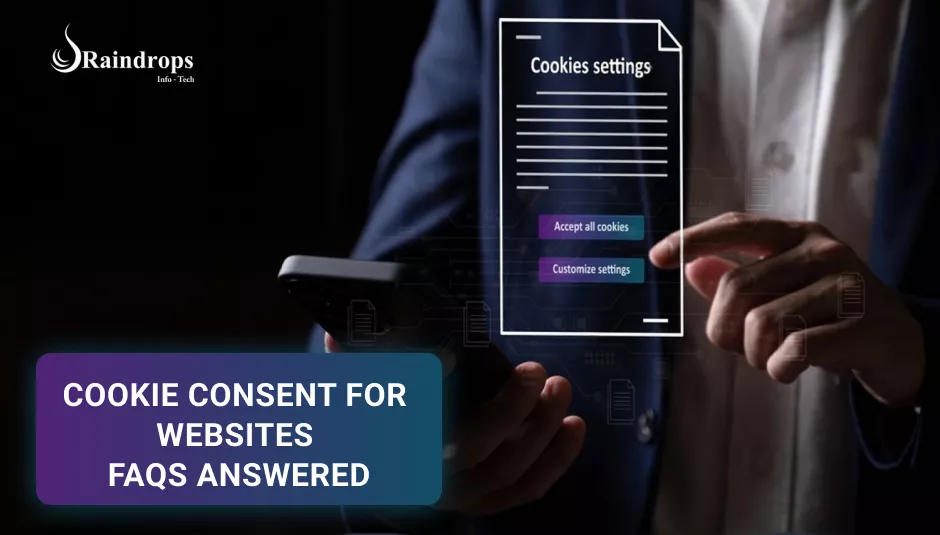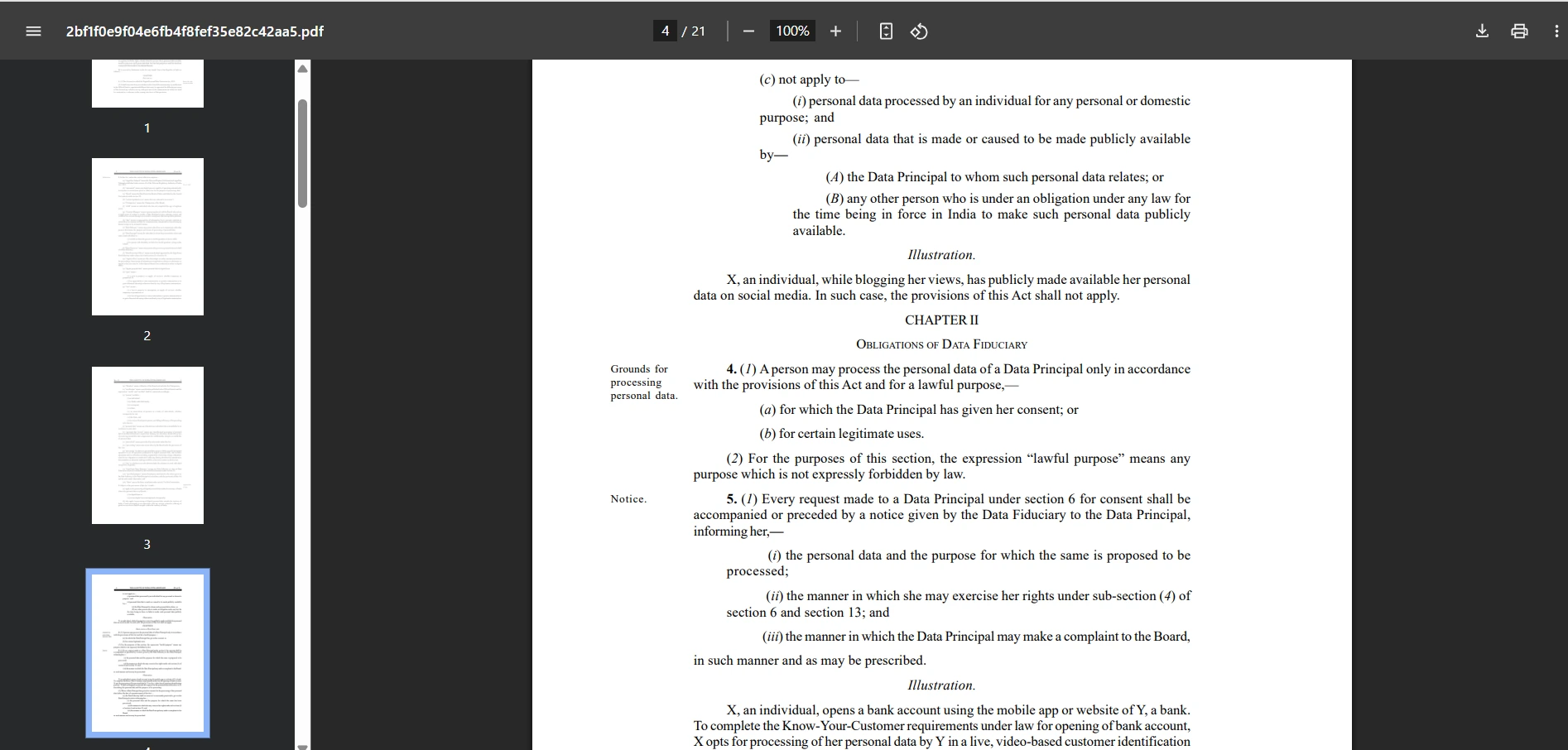You know those pop-ups that appear the moment you visit a website, asking if you accept cookies? Sometimes, they can be annoying or confusing. But behind these small banners is something important: your privacy and legal responsibility for website owners.
If you run a website or plan to build one, especially in India, understanding cookie consent is essential. Not only does it protect your visitors’ data, but it also keeps your website safe from potential fines and builds trust with users.
In this blog, I’ll answer the most common questions about cookie consent: what it is, why it matters, how to implement it, and what you need to know to stay compliant and keep your visitors happy. Let’s go!

1. What is cookie consent, and why does my website need it?

Cookie consent means asking your website visitors for permission before placing cookies on their devices. Cookies are tiny files websites use to remember your actions, preferences, and sometimes track you for advertising.
Why do you need consent? Because privacy laws like the European GDPR, and India’s evolving data privacy rules, require transparency about what data you collect and how you use it. Without consent, you risk legal trouble and losing visitors’ trust.
Think of cookie consent as a polite “May I?” before entering someone’s personal space. When your visitors know you respect their privacy, they’re more likely to stay longer and feel safe on your site.
2. What are website cookies, and how do they work?

Cookies are simple text files saved on your device by websites you visit. They act like little notes that remember things:
-
Keeping you logged in on a website
-
Saving your language or theme preferences
-
Remembering items you add to an online shopping cart
Without cookies, you’d have to enter your details again every time you visit.
But cookies can also collect data about your browsing habits — which pages you visit, how long you stay, what ads you click. This helps businesses show you relevant ads but also raises privacy concerns.
That’s why websites must be transparent and ask if you’re okay with this tracking.
3. Do Indian websites legally require cookie consent?
In India, while there is no specific cookie law, the Digital Personal Data Protection Act (DPDPA), 2023, requires explicit user consent before collecting personal data, which includes data collected through cookies. This means websites must use cookie pop-ups to inform users about cookie usage and obtain consent before setting non-essential cookies. The consent must be free, specific, informed, unconditional, and unambiguous, typically obtained through an opt-in mechanism


4. What types of cookies need consent on a website?

Cookies come in different categories:
-
Essential cookies: These are needed to make the website work properly, like keeping users logged in or remembering cart items. Consent usually isn’t required here because the site won’t function without them.
-
Performance cookies: These collect anonymous information to help website owners understand how visitors use the site and improve it. While they don’t track personal info, it’s good to inform users and get consent.
-
Marketing or tracking cookies: These track user behavior to show personalized ads or analyze visitor trends across websites. These definitely need explicit user consent because they deal with personal data.
Knowing which cookies your site uses is the first step toward compliance.
5. How does a cookie consent banner work?

A cookie consent banner is a small pop-up or bar that appears when a user visits your website for the first time. It explains what cookies you use and asks the visitor to accept or reject certain types of cookies.
Users can often choose to:
-
Accept all cookies
-
Reject non-essential cookies
-
Customize preferences by selecting which types of cookies to allow.
The website then respects the user’s choice and only activates cookies accordingly. A well-designed cookie banner is easy to understand, non-intrusive, and mobile-friendly.
6. What information should be in a cookie consent notice?

Your cookie consent notice must be clear and transparent. It should include:
-
A simple explanation of what cookies are and how your site uses them,
-
The purposes of the cookies (for example: analytics, advertising, or essential site functions),
-
Options for users to accept all, reject all, or customize preferences,
-
A direct link to your full Privacy Policy and Cookie Policy pages for more details,
-
An option for users to change their cookie preferences anytime later.
Transparency helps users feel in control, improving trust and user experience.
7. How do I implement cookie consent on my website?

There are many ways to add cookie consent:
Use free or paid cookie consent tools like Cookiebot, CookieYes, or Osano that provide customizable banners and compliance tracking.
If your website runs on platforms like WordPress or Shopify, install cookie consent plugins available in their marketplaces.
For custom-built websites, developers can integrate scripts or APIs that manage cookie consent.
Make sure your consent solution is visible on all devices and browsers and doesn’t interfere with the user experience.
8. Can I make cookie consent mandatory before users browse my site?

You can block all non-essential cookies until the user consents (called a “cookie wall”), but it’s not always recommended.
Cookie walls can frustrate users, causing them to leave your site or harm your SEO ranking since search engines might see the site as inaccessible.
A balanced approach is better: Inform users clearly, allow them to choose, but don’t block basic access.
9. How does cookie consent affect my website’s SEO?

Search engines like Google value user privacy and penalize sites that don’t comply with regulations like GDPR.
Implementing cookie consent properly shows you respect users and follow best practices, which can improve your site’s ranking.
However, overly aggressive cookie banners or walls can annoy visitors, increase bounce rates, and indirectly hurt SEO.
Aim for clear, user-friendly consent that respects privacy but keeps visitors engaged.
10. Where can I learn more or get help with cookie consent compliance?

To stay updated and compliant, you can:
-
Follow the Ministry of Electronics and IT (MeitY) updates on data privacy,
-
-
Consult with legal experts or web developers experienced in privacy compliance.
If you want hassle-free, expert help setting up cookie consent on your website, offers tailored solutions designed for Indian businesses and startups. Contact us today to ensure your website is safe, compliant, and user-friendly.






